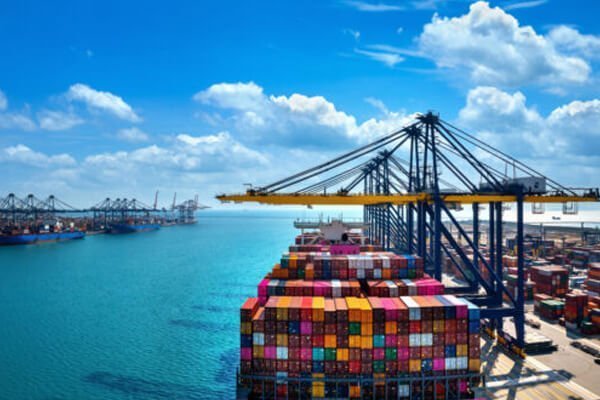U.S. Agent vs. FSVP Agent: Key Differences for FDA Compliance
When it comes to compliance in the U.S. food and dietary supplement industries, it’s crucial to understand the distinct roles of a U.S. Agent and an FSVP Agent. Both play key roles in regulatory compliance for foreign entities operating in the U.S., but they serve different functions under different regulatory frameworks. This article explores the key differences between these two agents, what responsibilities they hold, and why foreign manufacturers or importers need them.
Read more : Understanding FDA Structure/Function Claims Notification (SFCN): Why and When It Is Necessary
1. What is a U.S. Agent?
A U.S. Agent is required under the Food and Drug Administration (FDA) regulations for any foreign facility that manufactures, processes, packs, or holds food, dietary supplements, or other FDA-regulated products, such as cosmetics and pharmaceuticals, intended for U.S. markets. This requirement stems from the Bioterrorism Act of 2002, which mandates that foreign facilities must designate a U.S. Agent as a point of contact with the FDA.
Primary Responsibilities of a U.S. Agent:
- Communication: The U.S. Agent serves as the primary point of contact between the foreign facility and the FDA. This includes responding to any inquiries the FDA may have regarding the foreign facility’s operations, products, or inspections.
- Assistance with FDA Communications: If the FDA needs to reach the foreign facility regarding urgent matters, such as product recalls or safety alerts, the U.S. Agent helps facilitate this communication.
- Document Submission: The U.S. Agent may be required to assist in submitting documents or responding to FDA notifications.
- Representation during Inspections: While the U.S. Agent is not responsible for compliance per se, they may serve as a representative during an FDA inspection.
Key Points to Note:
- The U.S. Agent does not assume responsibility for the foreign facility’s compliance; their role is purely communicative and administrative.
- The U.S. Agent can be an individual or an organization based in the United States.
- They must be available during regular U.S. business hours to respond to FDA requests.
2. What is an FSVP Agent?
The Foreign Supplier Verification Program (FSVP) Agent is a requirement for foreign suppliers who export food and dietary supplements to the U.S. under the FDA Food Safety Modernization Act (FSMA). The FSVP regulation applies to importers in the U.S., but foreign suppliers often designate an FSVP Agent to help navigate the compliance process.
Read more on : FSVP compliance
Primary Responsibilities of an FSVP Agent:
- Ensuring Product Safety: The FSVP Agent is responsible for ensuring that foreign-sourced food and dietary supplements meet U.S. safety standards. They must verify that the foreign supplier uses processes and procedures that provide the same level of public health protection as those required under U.S. laws.
- Conducting Hazard Analysis: The FSVP Agent must evaluate the foreign supplier’s procedures and determine whether hazards (e.g., biological, chemical, or physical hazards) are properly controlled.
- Verification Activities: Depending on the product, the FSVP Agent might be responsible for conducting verification activities, such as reviewing supplier certifications, inspecting the foreign supplier’s facility, or testing products.
- Corrective Actions: If an issue arises with a foreign supplier’s compliance, the FSVP Agent helps the U.S. importer implement corrective actions to mitigate risk.
- Record Keeping: FSVP Agents must maintain detailed records of all verification activities and compliance steps to demonstrate adherence to the FDA’s safety standards.
Key Points to Note:
- The FSVP Agent takes on a more active role in ensuring compliance than a U.S. Agent. They are responsible for verifying that the foreign supplier’s practices meet U.S. standards and for addressing any safety concerns.
- The FSVP Agent may also be the U.S. importer or another qualified individual in the U.S. who is capable of performing the required FSVP duties.
- They must be knowledgeable about the risks associated with the specific food products and processes used by the foreign supplier.
3. Key Differences Between a U.S. Agent and an FSVP Agent
While both agents are critical in helping foreign suppliers meet FDA requirements, their roles are distinctly different in scope and responsibility.
Scope of Responsibility:
- The U.S. Agent is mainly a conduit for communication between the FDA and the foreign facility. They are not involved in ensuring the product meets safety or regulatory standards.
- The FSVP Agent, on the other hand, plays a critical role in ensuring that food and dietary supplements comply with U.S. safety regulations. Their duties are more hands-on and directly related to product safety and verification.
Legal Responsibility:
- The U.S. Agent has no legal responsibility for the compliance of the foreign facility. Their role is limited to facilitating communication.
- The FSVP Agent is responsible for verifying that the foreign supplier is following U.S. food safety regulations. They are legally accountable for ensuring that all necessary steps are taken to protect consumers from unsafe food products.
Regulatory Framework:
- The U.S. Agent operates under the Bioterrorism Act of 2002, which focuses on the registration of foreign facilities with the FDA.
- The FSVP Agent works within the framework of the FSMA, which aims to prevent foodborne illnesses by ensuring foreign-sourced products meet U.S. safety standards.
Types of Products Covered:
- The U.S. Agent may be responsible for any FDA-regulated product, including food, dietary supplements, cosmetics, and pharmaceuticals.
- The FSVP Agent specifically deals with food and dietary supplements imported into the U.S. and ensures their compliance with U.S. food safety laws.
4. Why You Need Both Agents
If you are a foreign manufacturer exporting FDA-regulated products to the U.S., it’s likely you’ll need both a U.S. Agent and an FSVP Agent, especially if you are dealing with food or dietary supplements. Here’s why:
- The U.S. Agent ensures smooth communication with the FDA, especially during registration, inspection, and potential inquiries.
- The FSVP Agent ensures that the product complies with U.S. food safety laws and takes an active role in preventing potential safety hazards.
Both agents help navigate complex regulatory landscapes and ensure that your products can be imported and sold in the U.S. without compliance issues.
To resume
The roles of a U.S. Agent and an FSVP Agent are essential but distinctly different in the U.S. regulatory system. While the U.S. Agent serves primarily as a point of contact between foreign facilities and the FDA, the FSVP Agent plays a hands-on role in ensuring that foreign-sourced food and dietary supplements meet U.S. safety standards. Understanding the difference between these two roles is critical for any business navigating the U.S. regulatory environment, particularly in food and dietary supplement industries.
By securing the right representation in the form of both a U.S. Agent and an FSVP Agent, foreign suppliers can ensure smooth import operations and full compliance with U.S. regulations. Contact Cosmereg for assistance for these particular aspects of your business and get an initial assessment. Our experts can help you navigate FDA food regulations, ensuring your products meet all necessary safety and compliance requirements.




